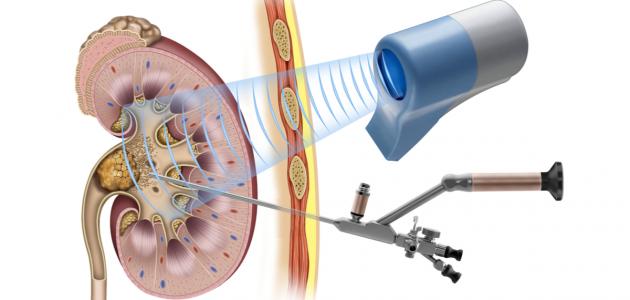Symptoms of kidney pelvis inflammation
Symptoms of pelvic inflammatory disease appear within two days of exposure to the infection, and these symptoms can be described as follows:
- Common symptoms:
- High temperature of more than 38.9 degrees Celsius.
- Urgent and frequent need to urinate.
- The appearance of blood or pus in the urine.
- Suffering from pain in the abdomen, side, back pain, and groin origin.
- Urine has a fish-like odor, in addition to cloudy urine.
- Feeling pain or burning during urination.
- Other symptoms:
- Nausea and vomiting.
- Fatigue and fatigue.
- Disorder of mental abilities.
- Skin moisture.
- jerk;
- General feeling of pain and illness.
Causes of kidney pelvis inflammation
Pyelonephritis occurs due to exposure to bacteria or viruses that cause bladder infections, as this infection is transmitted through the bloodstream to infect one or both kidneys. In fact, pyelonephritis is one of the types of urinary tract infections, and it is worth noting that pyelonephritis It may occur because bacteria causing infections elsewhere in the body move to the kidneys through the bloodstream, and surgery on the kidney level rarely leads to kidney pelvic inflammation.
Read also:What causes urine color to change to red?
Risk factors for pelvic inflammatory disease
There are many factors that increase the risk of developing pelvic inflammatory disease, including the following:
- Gender: The urethra is shorter in length in women compared to men, which facilitates the transmission of bacteria to the bladder and causing infection. The external urethral opening is also close to the vagina and rectum, which facilitates the entry of bacteria from these areas into the urethra.
- pregnancy: The enlargement of the uterus during pregnancy causes pressure on the bladder, which reduces the flow of urine from the kidneys to the bladder, and thus facilitates the transfer of bacteria in the bladder to the kidneys.
- Weak immune system: A weak immune system occurs due to several factors, such as: diabetes, exposure to HIV, or taking certain medications.
- Urine flow disorder: Some conditions can cause slow urine flow, such as: suffering from kidney stones, urethral stricture, or prostate enlargement, as the flow of urine through the urinary tract is one of the most important inhibitors of infection.
- Nerve damage: Damage to one of the nerves surrounding the bladder or damage to the spinal cord may lead to a bladder infection, which develops to affect the kidneys.
- Catheter use: Using a catheter for a long period of time, such as during surgery or a hospital stay, increases the risk of developing a urinary tract infection.
- Vesicoureteral reflux disease: Vesicoureteral reflux is often diagnosed in childhood, and can be defined as a medical condition that causes a small amount of urine to reflux from the bladder to the kidney, carrying bacteria with it.
- Urinary retention: The inability to completely empty the bladder contributes to infection.









